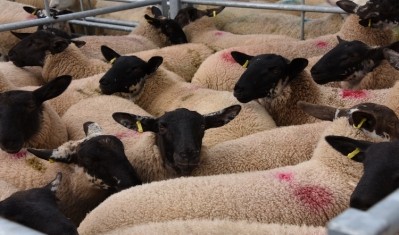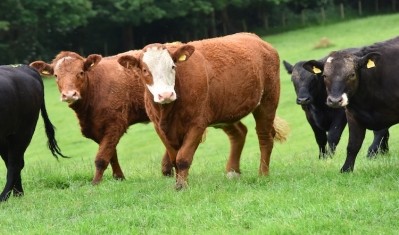Red meat is 'a scapegoat' for health and climate change

Diana Rodgers, a ‘real food’ nutritionist and sustainability advocate, told Hybu Cig Cymru - Meat Promotion Wales’ (HCC) annual conference, that the focus should be on what is the optimal diet for humans and how can it be grown in a sustainable way.
“Red meat is completely misunderstood and being unfairly being targeted as a scapegoat for our concerns about health and our worries about climate change; it’s much easier to pin our worries on something as powerful and polarising as red meat rather than tackling the world’s complex problems and tackling them in a cleverer and more nuanced way,” she said.
“There is bundled-up propaganda out there that says that meat causes cancer, heart disease, diabetes; that it’s bad for the environment; it’s unnecessary - why eat meat when we can just engineer proteins in labs? - [that] it is unethical; that those who are ‘more enlightened’ have moved beyond meat eating.”
Propaganda
She told HCC’s conference attendees that this propaganda was not only incredibly damaging but wrong.
She said: “There is no research that has shown a direct cause between red meat and disease; meat is the best source of iron and B12, the most common nutrient deficiencies worldwide. B12 is not available in plant-sourced foods and red meat’s iron is in the wrong form in plants. And, most importantly, the vegan diet is simply a privilege that many don’t have.”
She highlighted the environmental case for meat claiming that raising cattle on grass in general doesn’t require chemicals, increases soil microbial life and rainfall absorption.
Plant-based meat alternatives
“Look at the price of the plant-based meat alternatives; it’s almost twice as expensive per pound to buy the substitutes. It’s an extractive system where intense chemicals are needed and leave behind a bare, hard, dead soil with increased rainfall runoff and a hotter ground temperature,” Rodgers added.
She also said that artificial meat produced in a lab has absolutely nothing ecologically healthy about it at all.
“It takes large amounts of chemically grown monocrop, whether it’s wheat corn or soy, to process with a lot of energy to keep the temperatures regulated. It’s just not economically feasible and makes no sense from an energy perspective,” she added.

















